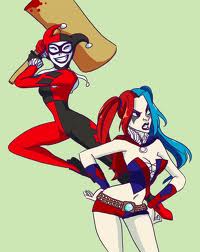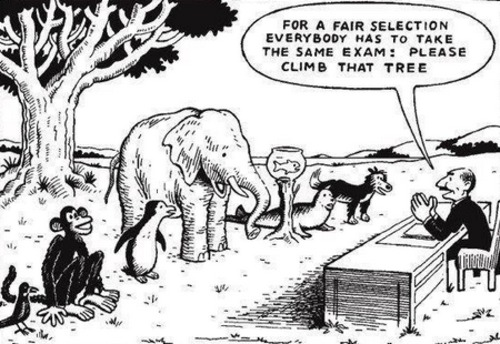Serendip is an independent site partnering with faculty at multiple colleges and universities around the world. Happy exploring!
S. Yaeger's blog

Some Thoughts on Intentionality and Interpretation
Our discussion on Tuesday about Spivak's idea that the author is often the worst reader of their own work has me thinking about "The Help." I'm not sure if many of you have read it, but it was on the bestseller list over the summer, and was also adapted into a film. "The Help" is, in short, the story of a rich white woman who breaks into the publishing world by teling the stories of the black household workers of her southern town. At first it reads, as it was intended, as a sweet tale a inter-racial connection and understanding which is heartwarming and inpiring to all. However, a close reading reveas that the story is actually a sort of standard llne revision of US history, in which a white person risks nothing while the black characters risk everything and, at the end, the white woman is left in a better position, while the black women are exactly where they are when they started. The book contains scant reference to the civil rights movement, and the movie, from what I understand, contains even less.
Once I finished reading the book, I commented on it on Facebook, and was met with several comments about how I had misread the book, and how the author intended to highlight the racism of the 50's. Though I never did have time to research the author's statements regarding her intention, I did end up engaging in several debates regarding the story, and those debates eventually led to me gaining a greater understanding of the people with whom I was debating.

From Harley Quinn to Marjane Satrapi: How Genre and Institutional Tropes Affect The Male and Female Gaze
In the summer of 2011, one of the world’s biggest comic distributors, DC, announced that it would be re-launching many of its most popular titles with new storylines and re-imagined characters. Superhero fans of all genders rejoiced until they saw the new titles and realized that many of DC’s female characters had been rendered flatter, more sexually appealing, and less dynamic than ever before. Female fans the world over began to press, at comic conventions and on the internet, for answers from DC as to why they had decided to leave 50% of the world’s population behind as they modernized their books. They were met with a variety of responses, many of which added up to a simple “We write for men.” Though this sentiment is nothing new, and female comic characters have always been rendered to suit the male gaze, it is problematic when taken in the context of a purported modernization and exceptionally problematic when one considers the extreme leaps in sexualization that many of DC’s female characters have endured in the context of the recent reboot.


Some thoughts on Woolf's "poverty".
Since our class on Thursday, I have been thinking about Woolf's definition of poverty as a virtue that is necessary for education. My intitial reaction to her definition of poverty as having just enough to be independant, and wanting nothing more, was very emotional. This is, I'm sure, a reaction that was fed by my own lack of independence at this point. I read Three Guineas while trying to navigate a semester that has started with me being without working heat or hot water for 3 weeks, and with me worrying constantly about whether I will have enough gas to make it to campus for class. I missed the first class discussion of the book because someone had to stay home to wait for a plumber to look at our furnace, and no one else in my house could afford to miss work. I say this, not to garner sympathy, but to say that, though I was frustrated and insulted by Woolf's definition, and by her insistence that such poverty would be a virtue, perhaps she was somewhat right.

Do I have a place at this table?
Since our discussion of Goblin Market this week, and the related question of whether each of us is a feminist, I have been stuck on my answer to that question. My intial response was that I am, of course, but then I began to wonder if that definition is too narrow. In fact, I'm kind of stuck wondering if feminism is too narrow in general. Until recently, I accepted the dictionary definition of feminism as being about equally for both genders, but it is that binarism that has me stuck right now.
It seems to me that, historically, feminism has relied on the notion that there are two distinct genders, and that those genders are at odds with one another. While there's definitely a tradition, especially within 3rd wave feminism, of making room for women who don't strictly adhere to gender norms, there is still the problem of erasure of women who were assigned male at birth, and the errasure of men who were assigned female at birth, inherent in much of the rhetoric surroundng feminism. From the second wave movement of loving one's vulva, to recent events, including the "Womyn born Womyn" event, feminism still seems stuck on the idea that having a vagina = being a woman. To me, this is too narrow a definition.

Is Academic Writing Classed?
I have to admit. My first thought is; "Fuck yes!". Though this class has exposed us to a variety of academic texts that are rooted in the personal, academic writing definitely relies on a classed structure of densely worded prose and almost deliberately confusing wording. In order to unlock the meaning of many academic texts, one has to have been taught or taught themselves an extensive vocabulary that is not used in every day speech. When was the last time anyone used the word "hegemony" in everyday language? Additionally, there are academic snigletts that get used in discussion and writing, such as "problematize", while coloquial delects are excluded.

A (Hopefully) Inclusive Conversation About Right Relationships Between Cis and Trans Feminists
Several weeks ago, a user of the website TUBLR posted about Bryn Mawr’s policies regarding trans women. She called the school out for a number of things. Students, myself included, responded pretty quickly to defend the school and to explain that the Bryn Mawr community is largely welcoming to trans individuals.
I have been thinking about the exchanges we had since then and I have come up with many questions. When I was trying to decide what to do with this web event, I planned on writing a paper exploring my thoughts on a possible right relationship between cis feminist activists and trans feminist activists. Then, the thought occurred to me that doing so would be a little pointless if there were no trans female voices involved. I thought of the question recently raised in class about how to humanize someone you don’t know.
So I contacted the trans woman who had posted on TUMBLR and asked her if I could interview her for my paper. She agreed and I planned on interviewing her via email and writing a paper based on our interview. Something about that didn’t seem quite right to me. I had recently conducted interviews for a paper in another class and I hated the process of treating peoples’ narratives like data. I hated the idea of creating a closed conversation that would then be presented through the filter of me.

I wanted to respond to our discussion last night...
I want to be clear in this post that I am only speaking for myself, and that I am not attempting to invallidate anyone else's thoughts or feelings about last night's discussion of Eve Ensler's piece.
That said, it was a very triggering discussion for me, which came on the heels of dealing with a triggering text in another class.
I've been dreading that sort of thing since the beginning of the semester, even though I assumed that it was inevitable that I would encounter some texts and some discussions which would recall past traumas and elicit a very emotional reaction. I expected that when this happened, I would become quieter and would feel even less like I belonged in the class as that is how I've experienced triggering materials in other classes.
What surprised me was that last night's call for litanies and group discussions actually compelled me to be louder and more assertive.

An interesting Editorial Cartoon
I yanked the following cartoon off a friend's tumblr page, and I think it's a neat way to question standardized testing.



